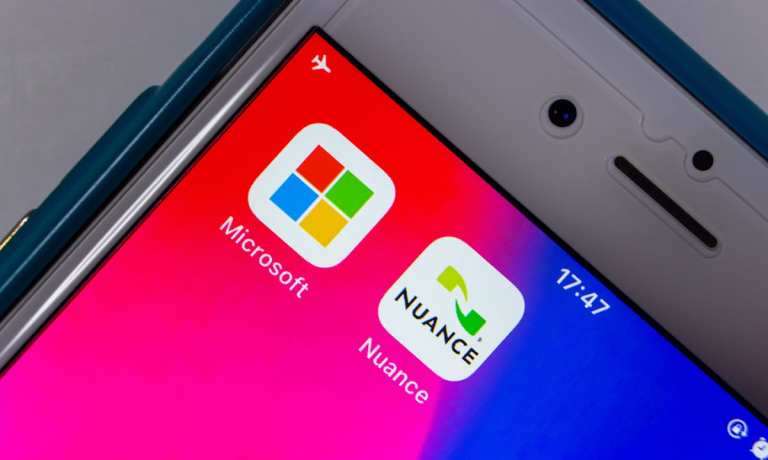Microsoft’s $16B Nuance Deal Under Review by EU

The EU’s antitrust authority will take a closer look at Microsoft’s plan to purchase the artificial intelligence (AI) and speech technology company Nuance Communications for $16 billion.
As Reuters reported Tuesday (Dec. 7), the European Commission’s competition bureau will ask customers and competitors to fill out a questionnaire listing their concerns about the deal.
The questionnaire asks whether the two companies are in competition, and whether the acquisition could affect customers and rivals. For example, some may be concerned about Microsoft giving Nuance preferential treatment over competitors.
Read more: Microsoft Competes With Google, Amazon In Healthcare
Nuance’s key offering is transcription technology, which is popular with doctors — the company says it serves more than three-quarters of American hospitals. As Reuters points out, a deal could boost Microsoft’s standing in the healthcare market and help improve its AI offerings in health, speed and biometric security.
There’s another side to this. Nuance’s success has been driven in part by the deal it makes with customers, allowing the company to use their data to advance its voice recognition technology.
Cloud vendors like Microsoft typically don’t get free access to customer data for research and development purposes, which could explain the tech giant’s interest in Nuance, former employees said.
See also: Microsoft Clears US Antitrust Hurdle For Nuance Purchase
The deal was first announced in April, stemming from a previous collaboration between Microsoft and Nuance on a healthcare administration automation project.
“Nuance provides the AI layer at the healthcare point of delivery and is a pioneer in the real-world application of enterprise AI,” Microsoft CEO Satya Nadella said in the announcement at that time.
As PYMNTS noted then, this would be Microsoft’s most significant acquisition since the tech giant’s $26 billion purchase of LinkedIn five years ago.
The deal received a greenlight from U.S. antitrust regulators in June. Microsoft and Nuance applied for approval from the European Commission in November. According to Reuters, the regulator has until Dec. 21 to OK the deal or launch a wider investigation.
The two companies had initially planned to wrap up the deal before the year’s end, but said recently the undertaking could stretch into the early part of 2022.